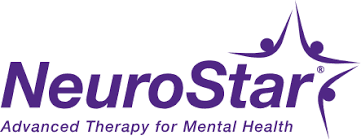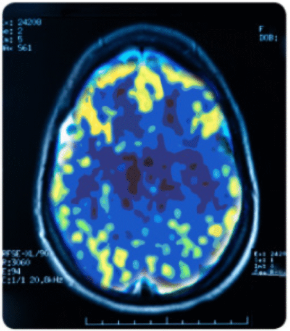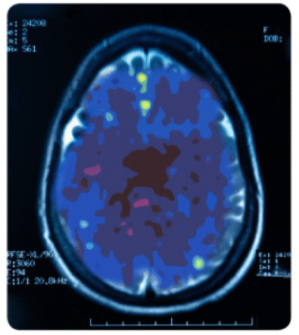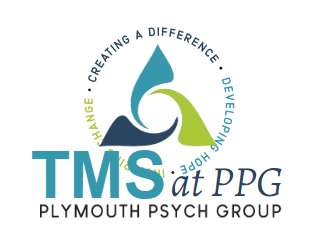Offering TMS Therapy in the Twin Cities
Now FDA-Cleared as an Add-on Therapy for Ages 15+!
A Life Changing Treatment For Medication Resistant Depression And OCD THAT WORKS!
TMS – Transcranial Magnetic Stimulation Therapy
TMS Q&A
TMS is like physical therapy for the brain. It uses magnetic pulses, similar in strength to MRI, to reignite dormant connections in the brain and the depression symptoms subside.
Transcranial Magnetic Stimulation is:
– FDA Approved
– Non-Invasive
– Covered By Insurance
During the session, you will feel some tapping or tingling sensations on your head. Each treatment session lasts between 19 and 40 minutes. Some TMS patients experience mild to moderate pain or discomfort at or near the treatment site during the first week of treatment. This is usually temporary and subsides in subsequent treatments.

Free Intake/ Phone Screening
Is this the right fit for you?

Provider Consultation
A 60-minute appointment with our TMS team.

Authorization
Working with your insurance company to get your TMS treatment covered.

Mapping
Brain mapping is a procedure used to determine the treatment location and energy level of TMS pulses. The pulses are tailored to individual patients, depending on the size and shape of the head. Brain mapping takes place only one time, prior to the first session, and it takes about 20-30 minutes to complete.

Daily Treatments
You will receive daily (19-minute) TMS treatments Monday through Friday for anywhere from 6 – 9 weeks, depending on your needs and insurance. (Average 36 sessions total)
During a NeuroStar / TMS treatment session, a magnet similar in strength to that used in a magnetic resonance imaging (MRI) machine is used to stimulate nerve cells in the area of the brain thought to control mood. These magnetic pulses may have a positive effect on the brain’s neurotransmitter levels, making long-term remission possible.
Plymouth Psych Group is the RIGHT choice for your TMS treatment:
- Extended Business Hours
- Personalized & Consistent Care Team
- Celebrating Over One Year of Successfully Treating with TMS
- Certified in Both OCD + MDD/Depression
- Convenient Location in the Twin Cities

TMS for depression | Plymouth Psych Group

End Depression. Live a Life Worth Celebrating.
TMS is a non-invasive treatment for patients suffering from Major Depressive Disorder who have not achieved satisfactory improvement from prior anti-depressant medications.
Plymouth Psych Group uses transcranial magnetic stimulation (TMS) to target key areas of the brain that are underactive in people with depression. It is not ECT (electroconvulsive therapy)
Non-Depressed

Depressed


Real Stories from Our TMS Patients at Plymouth Psych Group
Discover the impact of Transcranial Magnetic Stimulation (TMS) through the words of our patients at Plymouth Psych Group. These personal accounts highlight the positive changes and renewed hope that TMS has brought to their lives. If you are considering TMS for your own mental health journey or for a loved one, we invite you to read their experiences and see how this innovative treatment has made a real difference. We are here to support you every step of the way.
Before I began TMS this year, I was struggling a bit with depression and anxiety. I worried a lot more, felt a lot more tired and unhappy, and I had trouble adjusting to moving back home for the summer. Since then, I have seen AMAZING improvements. I have more energy, am able to relax more, and I'm feeling a lot better about everything. It feels now as if everything is gonna be alright. The service was wonderful, especially with Eliza. Going to TMS felt less like a chore, and more like an enjoyable way to start the day! Even the process itself wasn't that painful. Even at the end, when the magnetic waves were at their strongest, I barely felt a thing! It feels wonderful to have done all this, and I'd gladly recommend it to anyone struggling with depression! Thanks for everything!
I.H.To say that this has been an effective procedure would be an understatement. I have taken SSRIs for a fairly large portion of my life, and anti-anxiety alongside them. They held the proverbial line, but I always felt like I was doing only that. Any ground I ceded to depression wouldn’t be readily given back when I felt better.
When I first heard of rTMS, I immediately was interested. Uneasy, perhaps, but I had heard of it previously. It had been described as a possible option by a doctor a while ago, while I was in an outpatient clinic. That was many years ago, though, I was still a minor and my parents and I all agreed we’d try medication and therapy before something new like that.
“New” implies this is untested, but the truth is the first TMS devices were used in the mid-80s and they’ve been approved since the aughts, so it’s only new in the sense that the first people to develop it are still alive.
Many years later, as I went through a particularly rough patch, I noticed Dr. Sokeye’s clinic offered a “safe, non-invasive treatment”, and figuring I had little left to lose emotionally, I took the opportunity immediately.
The first day was “Brain Mapping”. The machine needs to know where the region it needs to stimulate is. To do that, they first locate your cortical homunculus: The region of your brain where all your motor and sensory data is processed. Once that is found, they refine the search to just your right thumb. From there, they don’t need to change anything, the machine handles it automatically for the rest of the sessions. You only need to sit in the same way you did during the mapping.
It feels like a flicking sensation, though it’s also a bit more than that. The most unpleasant part I can think of is the slight ‘flash’ I would get behind my eye, like a migraine that lasted for a microsecond. Believe me when I say, though, that even a moment after it I could barely remember how it felt. Sometimes the fingers on your right hand twitch gently, since the machine’s still close to that part of your brain. It stops when the pulse stops.
Going home from it the first day, I felt a little underwhelmed until I sat down and saw the colors on my main monitor glow brighter. Or maybe it was the music playing over a rainstorm in the convenience store I went to. It might have just been seeing people walk by in the park, a million other lives and stories. I didn’t truly notice just how good things felt, but they did. For once, things felt good. Things felt, at all. I could sit in my room, working on an assignment, and just be happy in the background.
Depression dulls your emotions as a whole, happiness is just the biggest one. I still have moments where I’m sad, or angry, or afraid, but critically those are normal moments. They last as long as anyone else’s, instead of taking hours or even days to be completely cleared.
I’m at exactly the halfway point of treatment, and for once I’m excited to see where a treatment takes me. The one thing I wish is that everyone who hurts could receive this. If I had the money, I’d see to that. I’d return everyone’s life the same way this returned mine, on a current of 1.5 tesla(*actual output may vary).
My regards go to Khatidja and Eliza, the two who operate the machine in day-to-day treatment, as well as my psychiatrist Dr. Sokeye, who has provided me with this opportunity and many before it.

My name is Isabel, I started taking antidepressants since my late husband passed away in 1999, ever since that time I have been taking the medicines every single day without missing a dose and keeping my appointments. I have tried different types of medications through the years and they would work well, for a while.
I.S.Since my therapist recommended me Plymouth Psych Group, it has been a god sent life change for the better. It has helped me with the panic attacks, anxiety and the depression that I have become a changed person. I did TMS last year and it helped me a great deal with all the symptoms that I had. I started to feel better and with more energy and willingness to do the things I needed to do for a long time. I did TMS again this February and it helped me again, without questions I was able to take care of my house and do the cooking that I have done in a very long time due to not having the energy to do.
When they say you need to map your head, it is not that they are going to cut or hurt your brain with anything, it is just an area that they need to get you started with it. The magnetic therapy works really well and is not invasive in any form. There is one thing that you must do, you need to show up on time for every section and must be on time and do not miss any appointments with it. You will start to see improvement in 2-3 weeks. Good luck and think positive, have faith with the treatment.
Sincerely Yours,